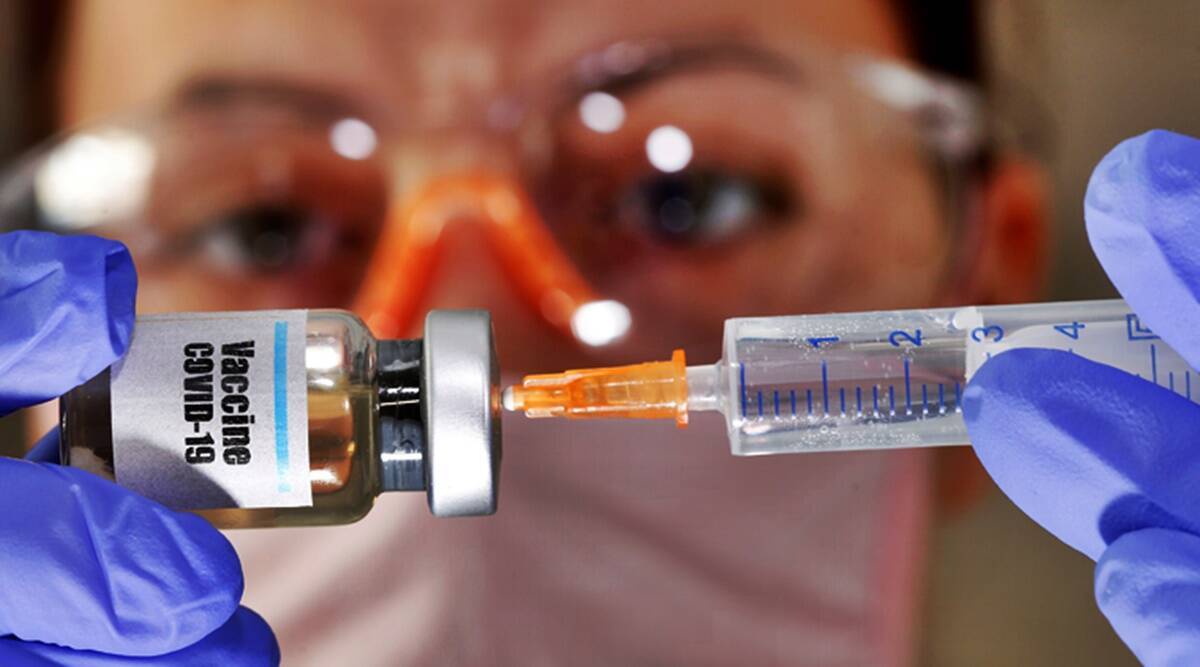 The mRNA vaccines against coronavirus are safe to use in pregnancy. (File Representational Photo)
The mRNA vaccines against coronavirus are safe to use in pregnancy. (File Representational Photo)The mRNA vaccines against coronavirus are safe to use in pregnancy, suggested a large Canadian study published on Thursday in The Lancet Infectious Diseases journal, which found that vaccinated pregnant women experienced fewer side effects than similarly aged, non-pregnant vaccinated people.
Covid vaccines were recommended for use in pregnancy in many countries early on, based on the established safety of inactivated vaccines in pregnancy and reassuring data from the small number of pregnancies occurring during vaccine trials.
According to the Lancet report, the study is one of the first to look at the coronavirus vaccines’ side effects by enabling comparisons between groups of vaccinated pregnant women, unvaccinated pregnant women and vaccinated non-pregnant women.
“In the early stages of the Covid-19 vaccine rollout, there was low vaccine uptake among pregnant people due to concerns about data availability and vaccine safety. There still is lower-than- average uptake among non-pregnant women of reproductive age,” said the first author of the study, Dr Manish Sadarangani of the British Columbia Children’s Hospital Research Institute.
Subscriber Only Stories
“Large, observational studies like ours are crucial for proper understanding of the rates of adverse health events in pregnant women after different doses of Covid-19 vaccination. This information should be used to inform pregnant women about the side effects they may experience in the week following vaccination,” Dr Sadarangani added.
The study, from The Canadian National Vaccine Safety (CANVAS) Network, looked at data from participants across seven Canadian provinces and territories between December 2020 and November 2021. All vaccinated participants were asked to self-report any health events during the seven days following each dose of Covid-19 vaccine. The unvaccinated pregnant control group was asked to record any health problems over the seven days before they filled out the survey. In total, 191,360 women aged 15-49 years with known pregnancy status completed the first-dose survey and 94,937 completed the second-dose survey.
A “significant health event” was defined as a new or worse health event that was enough to cause the participant to miss school or work, require medical consultation or prevent daily activities in the previous seven days. A “serious health event” was defined as any event resulting in an emergency department visit or hospitalisation in the previous seven days.
The researchers found that 4 per cent (226/5,597) of mRNA-vaccinated pregnant women reported a significant health event within seven days after dose one of an mRNA vaccine, and 7.3 per cent (227/3,108) after dose two. The most common significant health events after dose two in pregnant women were a general feeling of being unwell, headache or migraine, and respiratory tract infection.
In comparison, 3.2 per cent (11/339) of pregnant unvaccinated participants reported similar events in the seven days prior to survey completion. In the vaccinated non-pregnant control group, 6.3 per cent (10,950/174,765) reported a significant health event in the week after dose one and 11.3 per cent (10,254/91,131) after dose two. Serious health events were rare in all groups (fewer than 1 per cent) and occurred at similar rates in vaccinated pregnant individuals, vaccinated non-pregnant people and unvaccinated pregnant women after dose one and dose two.
Miscarriage or stillbirth was the most frequently reported adverse pregnancy outcome with no significant difference between the rates in vaccinated and unvaccinated women; 2.1 per cent (7/339) of unvaccinated pregnant women and 1.5 per cent (83/5,597) of vaccinated pregnant women experienced a miscarriage or stillbirth within seven days after dose one of an mRNA vaccine.
“The lower rate of significant health events amongst vaccinated pregnant people, compared with vaccinated non-pregnant individuals, is unexpected and requires more research. Previous studies on other vaccines in pregnant women have mostly reported no significant differences in health events between pregnant and non-pregnant women or have found higher rates in pregnancy. Further studies of non-COVID-19 mRNA vaccines are required to identify if the reduced side effects observed in pregnant people in this study is a feature of the mRNA vaccine platform, or of these specific vaccines,” said Dr Julie Bettinger, senior author of the paper and also from the British Columbia Children’s Hospital Research Institute.
Most participants who reported ethnicity in the study were white and these data may therefore not be fully generalisable to other populations, the authors caution. Also, the study focused on health events occurring within the first seven days following vaccination and so cannot conclude anything about longer-term reactions. Another limitation is that data supplied by study participants were not verified by using medical records.
- The Indian Express website has been rated GREEN for its credibility and trustworthiness by Newsguard, a global service that rates news sources for their journalistic standards.

